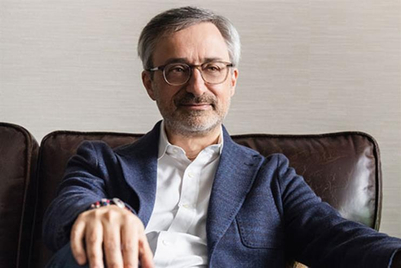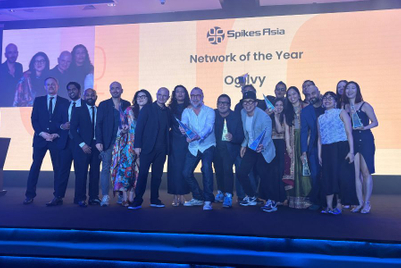
Pollution caused by plastic waste is a problem that many people are aware of but few take action against. Around 8 million tons of plastic end up in the world’s oceans each year, with more than 80% coming from Asia, according to the Nikkei Asian Review.
In Japan, the Tokyo Metropolitan Government faces the unenviable task of changing ingrained behaviour with almost no funding for communications.
Japan is known internationally for its excessive packaging. Where supermarkets in countries like the UK have all but phased out the use of plastic bags, staff in Japanese retail outlets routinely wrap plastic with more plastic out of a sense of customer service. The use of ‘eco-bags’ has yet to take hold.
Until recently, Japan outsourced its plastic waste problem to China, shipping over 70% there for recycling. That changed in January, when China announced it would stop importing plastic among 23 other types of refuse. It has made the issue tangible, with large amounts of waste suddenly piling up in a country unaccustomed to seeing any evidence of it in daily life.
The government has pledged to improve domestic recycling capabilities, assigning around $14 million to the effort for this financial year. But environmental groups have pointed out that the problem that most needs addressing is the customary overuse of plastic itself.
With the advance of Tokyo 2020, the government has touted its commitment to environmental improvements and aims for zero carbon emissions during the games. Its efforts include the formation in July of ‘Team Mottainai’ (mottainai means ‘don’t waste’ in Japanese), a group ostensibly dedicated to furthering more sustainable practices.
"It’s important to have a professional communications person involved from the start. Private companies understand the importance of that, but the government doesn’t and that’s a huge barrier to getting the budget.”
—Yasuo Furusawa, Tokyo Metropolitan Government
Yasuo Furusawa, director of sustainable materials management at the Tokyo Metropolitan Government, outlined to Campaign the challenge he faces, and his frustrations.
Among other things, Furusawa is charged with reducing one-off, and in particular non-essential, usage of plastic. “We have to educate people,” he says. “We have to start right now.”
“People” means both the public and retailers. While supermarkets are mostly open to reducing their use of plastic, he says, convenience and department stores have pushed back vigorously against such proposals.
From a consumer perspective, he thinks communicating “on the same level” will be more effective than a top-down approach.
In Osaka, the Intercontinental and Hilton hotels have followed Starbucks in its initiative to stop using plastic straws. But the average person doesn’t understand the thinking behind such measures, Furusawa notes. The onus is on Tokyo to spur a nationwide change in the way people think about plastic waste, he says.
Here, he faces an immediate hurdle: the government has no budget for a communications strategy, nor anyone internally with communications expertise assigned to the project.
Furusawa emphasises the need for consultation rather than the usual bolt-on advertising or PR campaign. It could come from either discipline as long as the strategy is robust, he says. He laments the typically dry, text-heavy nature of public sector communications in Japan, contrasting them with what he sees as well-designed materials in Europe that indicate the involvement of a communications expert throughout the entire process.
“In Japan, we tend to think about the communications afterwards, so the procedure is completely different,” he says. “It’s important to have a professional communications person involved from the start. Private companies understand the importance of that, but the government doesn’t and that’s a huge barrier to getting the budget.”
To get its point across, the government does not necessarily need to create anything as ambitious as ‘Trash Isles’, a Cannes Grand Prix-winning pollution awareness campaign by AMV BBDO in London that petitioned the UN to recognise a country made of the giant accumulations of rubbish floating out at sea.
But Furusawa thinks public bodies can learn a lot from the way commercial enterprises communicate. Furusawa points to an initiative by Coca-Cola that used a logo of a house with a smiley face to encourage safe driving among employees as an example of encouraging introspection simply and effectively.
“It’s really important to give the message in a fun way, otherwise no one will listen to you,” he says.
“I would like the government, municipalities and companies to show that it is as important an issue as overcoming poverty and hunger."
—Hiromitsu Kumetani, Nord Institute for Society and Environment
An observer at a large domestic PR agency in Tokyo who asked to remain anonymous due to company policy says it’s important to make people realise that the waste they see on beaches often comes from their own homes. He adds that the government has to be clear in its targets for waste reduction from the outset.
The source admits it would be difficult to change habits based on convenience such as buying disposable umbrellas, but thinks shock tactics to demonstrate the extent of problems caused by pollution could be effective.
He also notes the power of retailers in the formation of daily habits and as a communications channel. For that reason, he says, it would make sense for a communications plan to start by working in tandem with retail brands that already value sustainability, such as Natural Lawson, Muji and Patagonia.
Can Japan lead a global reduction in plastic waste?
Hiromitsu Kumetani, president and CEO of the Nord Institute for Society and Environment, a think tank, says Japan has so far been remiss in committing to international mandates to tackle plastic pollution. “Japan is in a position to take the lead” but is struggling to fulfil it, he says, wondering whether the country will be able to set a positive example to the world by the Tokyo 2020 Olympics.
From a communications standpoint, Kumetani makes four suggestions. The first is adherence to the SDGs (sustainable development goals outlined by the UN in 2015). “I would like the government, municipalities and companies to show that it is as important an issue as overcoming poverty and hunger,” he says.
The second is a campaign to make people question their behaviour. He thinks the beverage and retail sectors should take the initiative, along with manufacturers, to promote the use of reusable bags, bottles and containers.
The third is a system that refunds consumers for returning plastic containers. Even though Japan is already disciplined when it comes to refuse disposal, he says a permanent nationwide deposit system would help further reduce litter.
Lastly, Kumetani says he would like to see more communications action based on Responsible Care (RC), a voluntary initiative within the chemical industry that promotes the consideration of health, safety and the environment in a product’s life cycle. In particular, he would like to see the promotion of the use of biodegradable plastics by companies.
Ultimately, consumer-facing communications are just a piece of a much bigger picture. There are a host of other stakeholders to win over first. To make progress, the government must bring together a wide range of entities, including those in the communications, retail, manufacturing, chemical and B2B supplies industries. If it does that, it stands a chance of having a noticeable impact by 2020.
Ryoko Tasaki contributed reporting to this article.


.jpg&h=334&w=500&q=100&v=20250320&c=1)

.jpg&h=334&w=500&q=100&v=20250320&c=1)
+(1).jpg&h=334&w=500&q=100&v=20250320&c=1)

.jpg&h=334&w=500&q=100&v=20250320&c=1)



.jpg&h=334&w=500&q=100&v=20250320&c=1)
.jpg&h=268&w=401&q=100&v=20250320&c=1)
.jpg&h=268&w=401&q=100&v=20250320&c=1)
.jpg&h=268&w=401&q=100&v=20250320&c=1)



.jpg&h=268&w=401&q=100&v=20250320&c=1)
